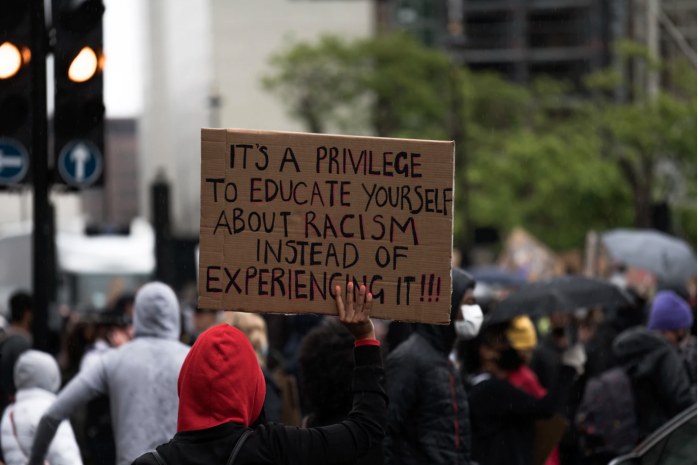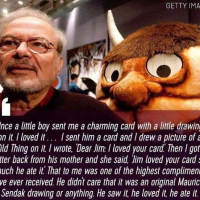I’m a little hard to place into a cultural box.
I was born in America, the accidental by-product of a moment of passion between a young Irish lass and a half-Mexican lad.
I was quickly adopted and grew up in a small village in southern New Jersey. My adopted family was a typical American family that was mostly oblivious of their Dutch and German ancestry.
Forty years later, I live in London.
I have long hair and a full untrimmed beard. As part of my spiritual practice, I often wear a small brightly-colored turban. That, along with my slightly-tanned skin causes me to be mistaken for an Indian man often.
Yet, growing up in a fairly racist part of the United States—I was a white kid.
In that place, there were only two races in the world: whites and Blacks (or usually a more rude word you thought disappeared after the 60s).
The whites were the skilled working-class and professionals.
The Blacks were unemployed or unskilled labour.
The whites owned their properties.
The Blacks rented. They lived in poorer areas with rundown houses; rusty, dented cars; broken screen doors; and overgrown lawns. Many of these areas were rife with drugs, small gangs, and single mothers, with lots of children, on welfare.
Racist jokes were the norm in my family.
Confederate flag stickers adorned my cousin’s Chevy pickup truck. It was common to hear snarky comments about the entire colored class following a single incident regarding one Black employee.
There was a genuine belief that with Black people came trouble.
Truth be known, you only had to drive 10 minutes away from my home to get a fairly convincing verification of this localized confirmation bias.
If there was an exception to this rule it was always noted as such: “Don’t worry. Jerome’s not typical. He’s a good, reliable worker.”
My family had a nursery and employed a man, Bob. Behind his back everyone called him, “Black Bob.” That was partly due to not confuse him with my Uncle Bob, who worked with us as well, but partly for unspoken rules. I remember my mother telling me, “Now don’t call him Black Bob to his face. Just Bob.”
The funny thing was that everyone genuinely liked Bob. He was a kind, warm-hearted soul.
There were other ethnicities, too. Sometime, in my early teens, the Mexicans arrived. A typical conversation, then, would be, “Yeah, they’re alright, much harder workers than the Blacks. Don’t know how they stand living with so many in one house though!”
There was also that Indian family who ran a local convenience store. No one knew where to place them. They were too dark for “white,” and too-light for “Black.” However, after 9/11 happened, they were placed squarely in the bad category.
On a short visit home from university my cousin informed me, “We’re not shopping with those dot-heads anymore!” Yes, you read that right. Hindu, Muslim, Sikh, and terrorists were all basically the same thing.
Are you disgusted yet?
Ready to send in the morality militia to give those racists a dose of their own hate medicine?
Maybe, you are more the wise-mother-goddess type and wish to embrace them with your warm but stern hands? To teach them that their racist views are hurtful and no longer acceptable? To let them know they have been bad children and should feel sorry for all the hurt they’ve caused?
Maybe, you are applying these attitudes toward yourself for not truly appreciating how much nicer it is to be a privileged Western white person than a privileged Western Black person?
Regardless, while it’s good that the problem of institutionalized racism is being brought to the forefront, I think there is something very important we’re missing in the public media narratives.
Racism is a problem, but it is not the root problem.
It’s actually a front, a symptom rather than a cause of the deeper, pervasive, and more insidious problems in our culture.
Racism is a fire, and one that is easily stoked.
But the real problem is: why does it burn in people so easily? Why is it easy for a viewpoint based in ignorance (the color of your skin makes you inferior) to take root and continue for generations, despite our education?
As I get older, and cast off the muck of Smallsville, USA’s racism, I began to reflect.
Why does my family think this way? Are they bad people? Why did I think it was acceptable to tell racist jokes when I was young? Was I bad too? I was a child and I grew up in it.
I knew no different.
Eventually it dawned on me that neither did they.
They didn’t do much traveling, outside of a cruise ship. From the narrow perspective of that small county, there was a statistical bias toward poverty and crime for Black people. The mistake my family made was attributing this to their skin color, some inherent nature of their ethnic origins, rather than from real circumstances.
Real circumstances like, you know, 100 years of slavery, followed by 100 years of violence and oppression, a few world wars, and more economic catastrophes than you can count.
Why were we so ignorant?
Well. I don’t know about you, but in my schooling I had umpteen years of studying the same dubious history of the founding of America, and its rise in world prominence. We spent no time whatsoever studying our local history.
We never studied that, despite being a village with a Native American name, there were no traces of these people or this culture left in it.
We never studied why the local large town, once a thriving economic centre, dubbed Little New York, had become run-down drug-ridden ghetto with the worst crime around.
As such, I was ignorant of the histories describing the neglect of African American veterans post-Vietnam and the mass emigration from the South to escape violence.
It was easy for me to adopt the shallow and ignorant narrative that the Blacks ruined Salem.
Our education neglects the areas most important to life and humanity instead focusing more on science, technology, engineering, and math. What about history? What about philosophy? What about psychology? Relationships? Communication? Emotions? Trauma and healing? Conflict resolution?
No. We are being bred to become highly specialized, largely ignorant cogs to operate the complex technology systems of tomorrow.
Burdened with endless technical responsibilities, we remain unaware of the complexities of the human and social aspects of life. Thus, we fail to effectively identify and confront real and unjust control systems; instead we focus on whatever hate-carrot is being dangled in front of us.
I propose that instead of fighting racism—we embrace it, understand it, and work with it.
Instead of moral censuring and virtue signaling, we need to learn the nuances behind it.
We need to share personal stories, shared histories. Don’t tear down a statue. Rather, put a placard on it describing the unsavory things that person did. That way it can become a monument for dispelling ignorance. Ignorance that has allowed racism to take root for so long.
I propose we look at the other deep problem here—poverty. And it’s growing middle class relative, austerity.
How quickly the unjust bank bailouts have disappeared from consciousness. If you want to get angry at something that is destroying the world, that’s a much better place to start, and one we can all get behind, regardless of our racial differences.
Who do you think is funding the manufacture of weapons that end up in the hands of the police and the wartime training programs that end up in their heads? Or even scarier, who do you think is going to fund the privatized law enforcement agencies when we’ve successfully disbanded local police forces?
But, let’s not find a new place to direct our anger.
Let’s realize that it is our own unacknowledged fears and our own internal suffering that creates the flammable ground where the fires of hatred in its many forms can take hold, burn, and be stoked by media agendas, agent provocateurs, and self-promoting personalities.
Just as we need to champion justice through peace, we need to inspire compassion through intelligence. Not the condescending academic-experts kind but the kind where each and every one of us takes the time to learn more about our surroundings and to share with others in our communities. So that we all grow together.
Knowledge is the only thing that can dispel ignorance.
Community is the only thing that can dispel our fear of becoming destitute.
Let us stop relying on institutions to give us these two vital things. It is my prayer that we begin to create them ourselves, and in doing so, receive the healing for which we all desperately yearn.
~












Read 3 comments and reply